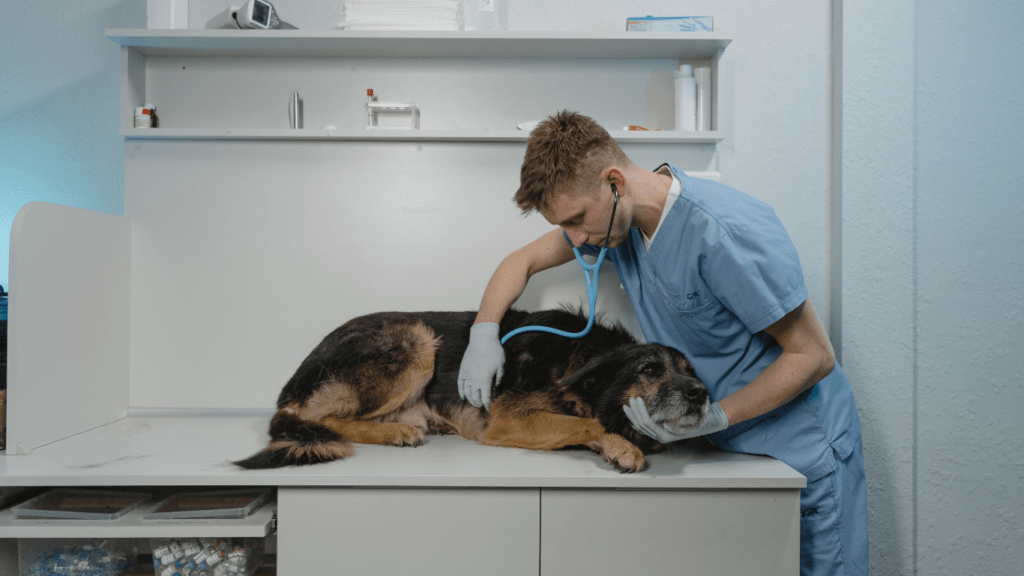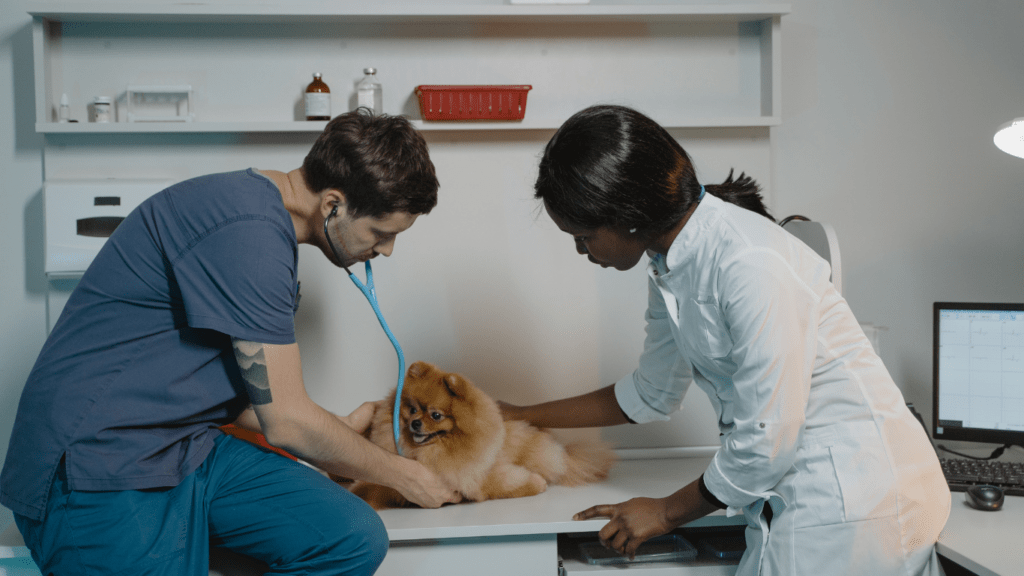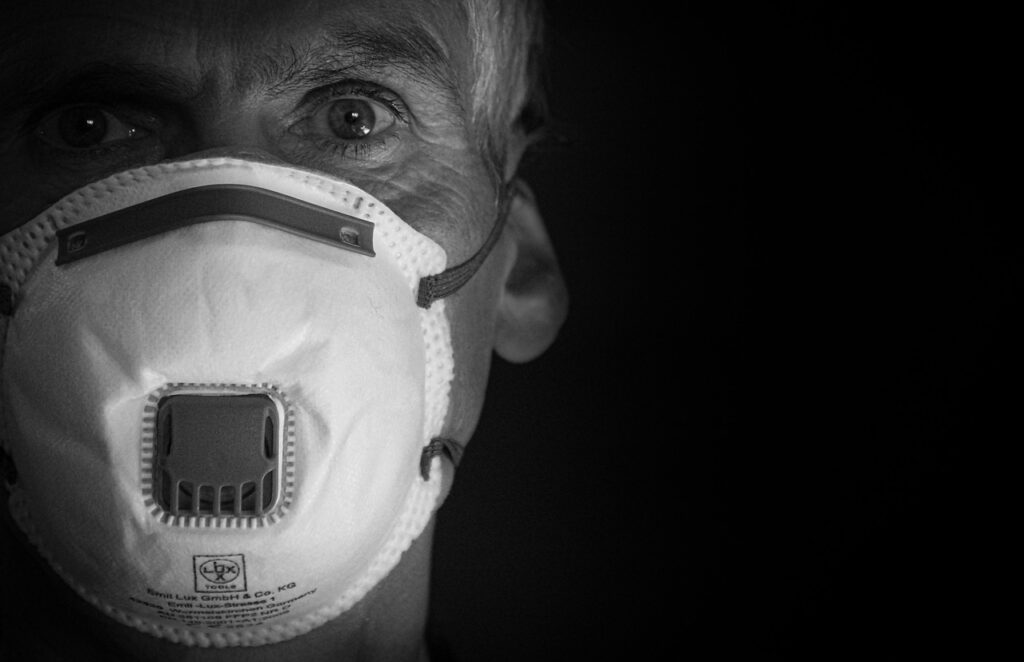Changes in Behavior
Recognizing behavioral changes in pets is crucial for their health. Immediate action is needed if you notice significant alterations.
Unusual Aggression
A sudden increase in aggression often points to discomfort or pain. Pets may growl, hiss, or snap without clear provocation. For example, a normally calm dog becoming irritable when touched or a cat hissing more frequently. Veterinary intervention can help determine underlying issues like injuries or illnesses.
Excessive Lethargy
Severe lethargy indicates various health problems. If your pet sleeps excessively or shows disinterest in regular activities like eating or playing, it’s a red flag. For instance, a dog that usually enjoys walks but refuses to move or a cat that stops grooming itself requires urgent attention. Lethargy can signify conditions ranging from infections to metabolic disorders.
Physical Symptoms
Identifying physical symptoms in pets quickly is essential for ensuring their health. Immediate veterinary attention is crucial if any of the following signs are observed.
Persistent Vomiting or Diarrhea
Frequent vomiting or diarrhea isn’t normal and may indicate serious health problems. Conditions like infections or intestinal blockages lead to persistent vomiting or diarrhea lasting more than 24 hours. For example, both can result from ingestion of toxic substances, which needs prompt vet intervention. Ensuring the pet stays hydrated and receives appropriate treatment is vital.
Blood in Urine or Stool
Blood in urine or stool shouldn’t be ignored, as it can signal internal injuries or illnesses. Causes include urinary tract infections, gastrointestinal diseases, or even parasites. For instance, blood in the stool may come from conditions like parvovirus or inflammatory bowel disease. Veterinary diagnostics and treatment are necessary to identify the cause and begin proper care.
Difficulty Breathing
Difficulty breathing, characterized by rapid, shallow breaths or labored respiration, requires immediate attention. Respiratory distress might be due to issues like:
- heart problems
- lung disease
- foreign objects
For example, tracheal collapse often causes difficulties in small breed dogs. A vet’s evaluation ensures the pet receives the necessary interventions to restore normal breathing.
Each of these symptoms signals potentially severe conditions. Recognizing and acting on them promptly can make a significant difference in a pet’s health outcomes.
Unexplained Weight Loss

Unexplained weight loss in pets can be alarming. It often indicates serious health issues that require immediate veterinary attention.
Sudden Drop in Weight
- Sudden drop in weight often signals underlying health problems.
- If your pet loses more than 10% of their body weight rapidly, illness may be the cause.
- Common culprits include metabolic disorders like diabetes or hyperthyroidism, intestinal parasites, and kidney disease.
- Regularly monitor your pet’s weight to detect any drastic changes promptly.
Loss of Appetite
Loss of appetite is another red flag. Pets who refuse food for over 24 hours could be suffering from infections, dental issues, or even cancer. Sudden changes in appetite often correlate with serious medical conditions. If your pet shows reluctance to eat, seek veterinary advice immediately.
Noticeable Pain or Discomfort
Pets may exhibit noticeable pain or discomfort through various behaviors or physical signs. Prompt attention from a vet can prevent further issues.
Vocalizing Pain
Animals often vocalize when they’re in pain. These vocalizations include whining, whimpering, growling, or yelping. If your pet makes these sounds frequently, especially while at rest or during activities they usually enjoy, it’s a red flag.
Limping or Lameness
Limping or lameness indicates immediate veterinary attention. Pets might avoid putting weight on a specific limb, walk with a noticeable limp, or exhibit stiffness. Causes include injuries, arthritis, or infections. For example, here are the signs of nerve damage in your dog’s back legs. If your pet suddenly shows these symptoms, it’s crucial to consult a vet to determine the underlying issue.
Changes in Eating or Drinking Habits
Alterations in your pet’s eating or drinking patterns can signal serious health issues. Monitoring these changes closely can help detect problems early.
Excessive Thirst
Excessive thirst in pets, also known as polydipsia, often indicates underlying health problems. Pets drinking significantly more water than usual might suffer from conditions like diabetes, kidney disease, or infections. If a pet continually drinks large amounts of water without a clear reason, it’s crucial to consult a vet to rule out these serious issues.
Refusal to Eat or Drink
A pet refusing to eat or drink for over a day requires immediate veterinary attention. Loss of appetite can result from various causes such as dental issues, gastrointestinal problems, or systemic diseases. Similarly, reluctance to drink water can lead to rapid dehydration, making it essential to seek prompt medical advice to identify and treat the root cause.



 Veterinary Advisor & Health Expert
Anthony Brooks is the in-house Veterinary Advisor at Pet Paw Shack, offering expert advice on pet health, disease prevention, and general veterinary care. With years of experience as a licensed veterinarian, Anthony helps guide pet owners through essential topics like vaccinations, routine checkups, and emergency care. His commitment to keeping pets healthy ensures that Pet Paw Shack delivers trusted and accurate medical insights.
Veterinary Advisor & Health Expert
Anthony Brooks is the in-house Veterinary Advisor at Pet Paw Shack, offering expert advice on pet health, disease prevention, and general veterinary care. With years of experience as a licensed veterinarian, Anthony helps guide pet owners through essential topics like vaccinations, routine checkups, and emergency care. His commitment to keeping pets healthy ensures that Pet Paw Shack delivers trusted and accurate medical insights.
